Baccalaureate Sermon, 1919
The baccalaureate sermon was delivered by Rev. Louis Stout, pastor of the Union Street Friends church, and was considered one of the best sermons delivered to a graduating class in recent years.
In 1919 (just over 100 years ago as I write) Lewis Stout, pastor of Union Street Friends Church in Kokomo, Indiana, was selected to preach the baccalaureate sermon for the graduating class at the local high school.
His sermon was well-received, at least by the newspaper reporter, who said that it “was considered one of the best sermons delivered to a graduating class in recent years.” The newspaper printed the full text of the sermon, which is displayed in newsprint form below.
This sermon would have been delivered just about six months after the close of World War I, and that event was strongly influential on Lewis’ choice of topic and his message to the graduates. He chose as his text 1 Peter 2:9, which says “You are a chosen generation, a royal priesthood, that you may show forth the excellencies of Him who called you out of darkness into light.”
“The wisest man is the one who sets himself to discover what God is doing in his day and having discovered it, sets himself to cooperating with God with all his might and heart.”
Lewis’ preaching method, not unusual for his day, was to choose a biblical text and use it as a springboard to a topic suitable for the day. He did not dive into the text to discover its basic message, nor spend time with the context to uncover the biblical writer’s intent.
“America is the chosen nation, the royal priesthood.”
For this sermon he freely applied the biblical text, which was addressed to 1st-century Christians, to the graduating class of Kokomo High School. This enabled him to create a new interpretation of the text, as revealed by this quote (which he spoke twice): “America is the chosen nation, the royal priesthood.” To an audience whose country had just emerged – heroically – from a World War, these words sat well. America was viewed, both at home and abroad, as God’s instrument, the great hope of the world.
“Priesthood stands for service. The Priest is the mediator between a resourceful God and a sin-sick world… We should throw ourselves without reserve into a unified program to redeem the world.”
Of course Lewis was well aware of the nature of his audience. Although Christianity had a stronger presence in America 100 years ago, there were undoubtedly many high schoolers and their families in attendance who did not regularly go to church. His sermon had to be aimed at everyone, not just the committed Christians in the audience.
“The Happy Life” – sermon at Union Street Friends
“We need to prayerfully study the written scriptures to discover better Jesus’ program for our lives and His secret of happiness.”
Approximately 40 years before Lewis Stout preached this sermon, famous Quaker author Hannah Whitall Smith had published her best-selling book The Christian’s Secret of a Happy Life. I am sure that Lewis had read the book, and its thoughts are reflected in this sermon.
“We ought to practice all the truth we teach, sing and hear. By so doing we shall be happy.”
The main point of this sermon is that true happiness comes not from knowing the Christian life, but from actually living it. This is clearly true to the original intent of Jesus’ words that Lewis chose for his text, found in John 13:17.
The text of the sermon is reprinted in full in the newspaper clipping shown at right. The date of the sermon is not given, but this statement in the sermon indicates that it was preached during World War I: “We ought not make the War an excuse for lowering the standards of business integrity… Moral and religious standards that are good in times of peace are just as necessary in times of War.”
My grandmother (Mildred Stout Votaw) once told me that her father (Lewis Stout) used hardly any notes when he preached. “He would just scribble a few words on a scrap of paper,” she said. Above we have a sample of Lewis’ notes for a sermon.
We don’t have the text of this sermon, but based on the notes, it appears to have been about “the sins of the tongue.”
Christmas, 1884 – Kokomo Friends Church
Holy midnight shrouded the hills and vales of Palestine. There was no sound save the low sighing of the sea breeze through the dead and faded grass. Not even from the ghostly flocks that dotted the landscape far and near came the sound of bell or bleating. Weary shepherds lay in their rude huts that stood on the banks of a babbling brook.
Suddenly a flood of dazzling light broke upon them, revealing their bed of earth and pillow of stone. They were blinded with fear and trembling seized them. Such glory they had never seen before – it did not belong to earth. It was the presence of heavenly visitants. They came not to steal away their flocks and herds, nor to do deeds of violence. Theirs was the message of Peace and they ushered in the Kingdom of Peace.
They came not with words declaring war and pestilence, but with the living, loving message “Unto us a Child is born, unto us a Son is given.” With voices that sang in heaven they sang the beautiful refrain “Glory to God in the highest, Peace of Earth, Good Will to men.”
Shepherds at the Grange, where the Babe was from, sang, with many a change, Christmas carols until morn. There, let us by the fire, even higher, sing them till the night expire. Go ye to the City of David, and there ye shall find the Prince of Peace. Worship Him. Weary and exhausted they sank back upon their stony pillows. Was it a dream? No! It was too vivid. It was real. Straightway they forsake their flocks and depart. The pale-faced moon was fast sinking behind the crest of a western hill. They looked above as if longing for one more glimpse of the angel band, and lo! a star with silvery light gleamed upon them. Not one of those bright sentinels they were wont to see, but the star in the east, the star of Bethlehem. It came and went before them and rested over the city of David.
There they entered, and in a crowded city dwelling they saw the Young Prince. Falling speechless at his feet they gave him holy reverence. Opening their treasures they gave him gold, frankincense, myrrh. That was the first Christmas morn.
Not long since I saw a painting of this beautiful scene. The mother, careworn yet angel like, was kissing the Young Child she clasped in her arms. Of the shepherds, in shepherd’s garb, some with heads bowed low, were soon shifting in their humble way. Others, with tearful eyes, were reluctantly presenting him the gold, frankincense, myrrh. Reluctantly because they felt the insignificance of their gifts, compared to the one before them, the dayspring from on high, the Christmas gift to the whole world. And yet what was more fitting? Could they have shown their gratitude in a better way to the Savior of the world? Truly they verified that “actions speak louder than words.”
It is Christmas again and it is a day that I love. I love it more than all other national holidays. I love it more because it marks the anniversary upon which the Savior of the world entered this low ground of sorrows and builded for man’s good, a character, unstained, irreproachable, and that fadeth not away. What a fitting time to ponder over the virtues of this Word that was made flesh and dwelt among men. It is natural that the gratitude of mankind should be drawn to their benefactors, and certainly the savior eclipses all others in sterling worth. In the grand galaxy of the world’s benefactors he stands out, a beacon of light, that dims all others with its splendor. Others came to conquer nations, to govern empires, as champions of civil liberty, but He came simply to cheer, to guide, to save. There are names that will ever be cherished in the mind of every schoolboy, but where is one that lives enthroned in the hearts of millions like Christ’s. It may be seen tonight on the walls of many happy homes, “Christ is risen”, “Jesus is born in Bethlehem”, “Christ is King”. His name in all enlightened countries is as conspicuous as if it sparkled in one of the constellations of the sky.
I love Christmas because it is a time to be merry. If there ever is a time to be merry it is Christmas time. I see not how the anniversary of the birth of Christ could be spent in sadness even by the most superstitious. Coming so near the glad New Year, it is fitting that we should think over our firm resolves for the future. On this day there is every reason for rejoicing, rejoicing for pleasant associations, for peace and happiness. It is no time to look on the dark side, to find fault, nor to feel ungrateful. It is not a time for wild mirth but for quiet cheer; not a time for wicked revelry but for holy joy. We should always make it a day that will leave behind it many pleasant memories. We should make it a day that will cluster around it the love the parents and the devotion of brothers and sisters.
I love Christmas because it cultivates the habit of giving. “It is more blessed to give than to receive” and I sometimes think it affords us more pleasure. I know of nothing that so nearly makes one seem to live over the purity and happiness of childhood as generous giving. But, give not your alms before men to be seen of them, for such giving is never thank worthy nor followed by happiness.
“One Christmas gift, dear friends I crave,
Which, still retaining, you can give;
And if you give not that to me,
Your presents all will worthless be:
Give me your love. Let us bestow gifts and receive them and all be merry.
Ring out the bells, it’s Christmas Day,
Their old familiar carols play,
And wild and sweet, the words repeat
Of peace on earth, good will to men.
Peal the bells more loud and deep;
God is not dead, nor doth he sleep.
The wrong shall fail, the Right prevail
With peace on earth, good will to men.
Finis.

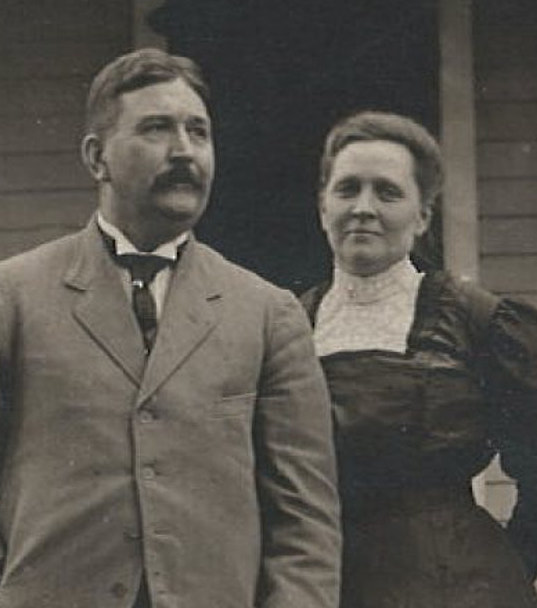
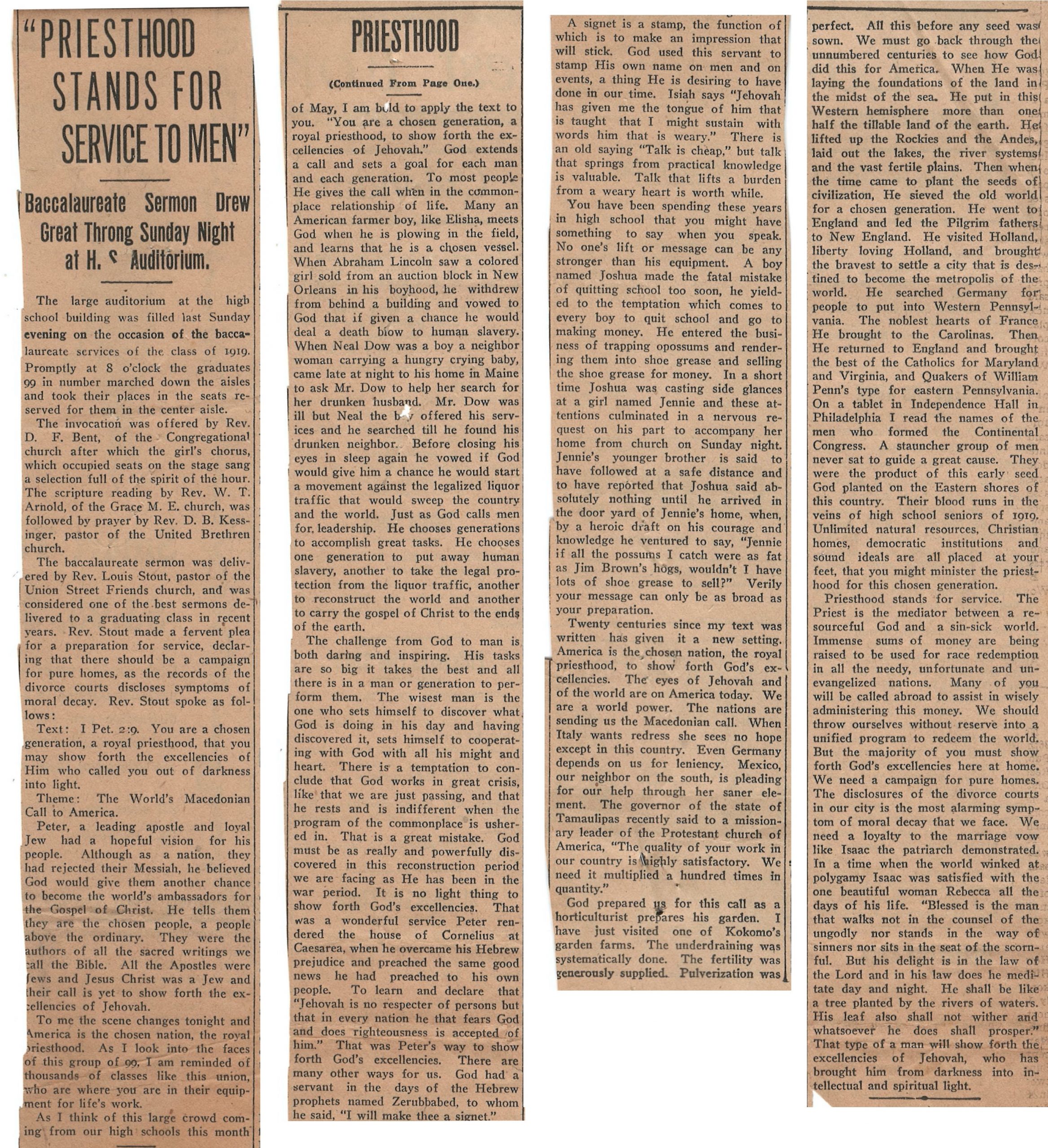
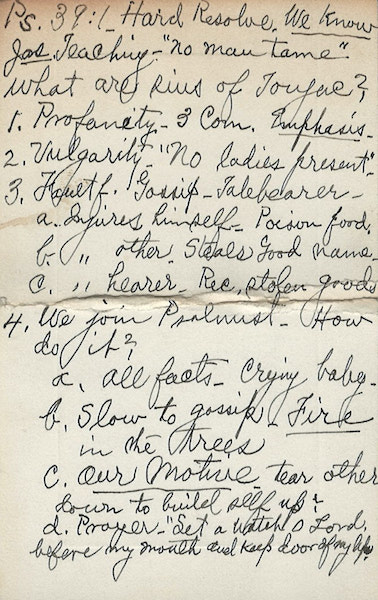
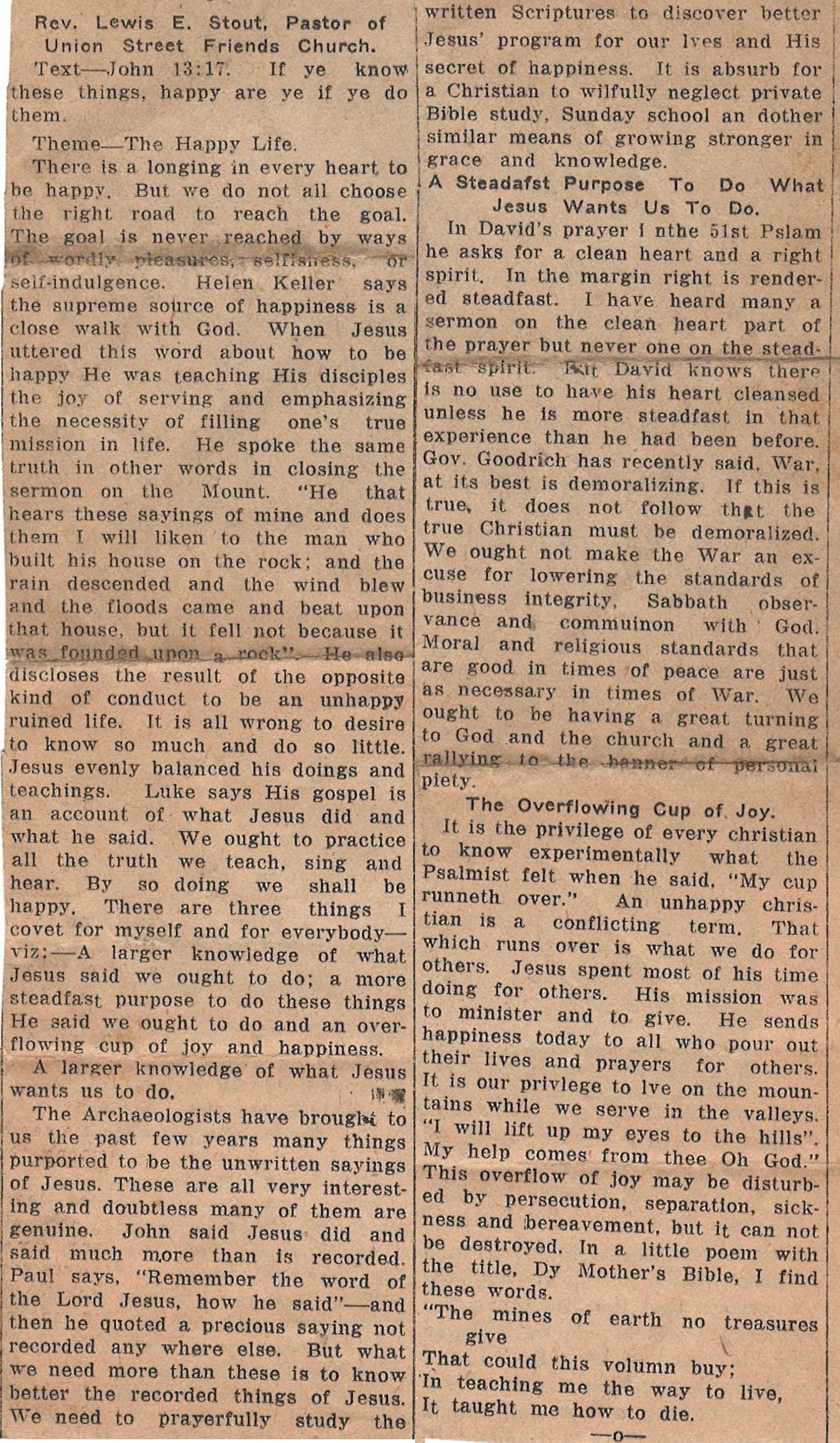
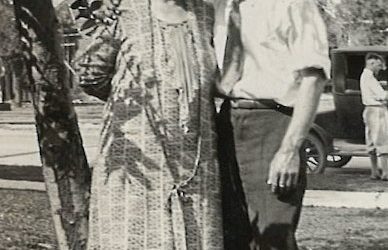
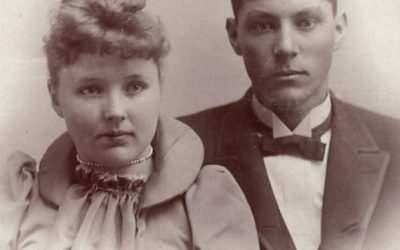
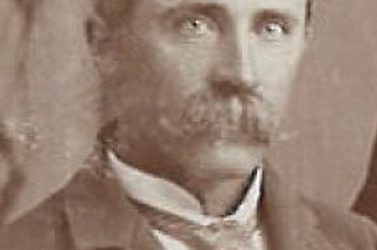
0 Comments